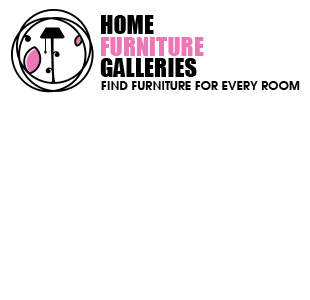Introduction to Pharmacy Technician Skills
Pharmacy technicians play a crucial role in the healthcare system by supporting pharmacists in various tasks that ensure the safe and effective dispensing of medications. To excel in this role, pharmacy technicians must possess a wide range of skills and competencies. This comprehensive checklist outlines the essential skills needed for pharmacy technicians to succeed in their careers. For more detailed information, you can visit pafikotakolaka.org.
Technical Skills
Medication Dispensing
- Accurate Prescription Filling: Ability to accurately fill prescriptions by measuring and labeling medications according to pharmacists’ instructions.
- Knowledge of Dosage Forms: Understanding different forms of medications, such as tablets, capsules, liquids, creams, and injections, and how to handle them properly.
- Compounding Medications: Skills in mixing ingredients to create customized medications as directed by a pharmacist.
Inventory Management
- Stock Management: Keeping track of medication inventory, including ordering, receiving, and storing pharmaceutical supplies.
- Expiry Date Monitoring: Regularly checking and removing expired medications from inventory to ensure patient safety.
- Inventory Control Systems: Proficiency in using inventory management software to maintain accurate records of stock levels.
Prescription Processing
- Prescription Verification: Verifying the accuracy and completeness of prescriptions before dispensing medications.
- Data Entry: Entering prescription information into pharmacy management systems accurately and efficiently.
- Insurance Processing: Understanding insurance policies and procedures to process claims and handle billing issues.
Clinical Knowledge
Pharmacology
- Drug Classifications: Familiarity with different drug classes, their uses, mechanisms of action, and side effects.
- Drug Interactions: Awareness of potential drug interactions and their implications for patient safety.
- Therapeutic Uses: Understanding the therapeutic uses of common medications and their effects on the body.
Medication Safety
- Adverse Drug Reactions: Ability to recognize and report adverse drug reactions and medication errors.
- Medication Counseling: Providing patients with basic information about their medications, including usage instructions and potential side effects.
- Safety Protocols: Adhering to safety protocols and procedures to minimize risks associated with medication dispensing.
Regulatory Knowledge
- Pharmacy Laws and Regulations: Knowledge of federal and state pharmacy laws and regulations, including controlled substances and prescription requirements.
- HIPAA Compliance: Ensuring compliance with the Health Insurance Portability and Accountability Act (HIPAA) to protect patient privacy and confidentiality.
- Professional Standards: Adhering to professional standards and ethical guidelines in all pharmacy practices.
Interpersonal Skills
Communication
- Effective Communication: Ability to communicate clearly and professionally with patients, pharmacists, and other healthcare providers.
- Patient Interaction: Providing compassionate and respectful service to patients, addressing their questions and concerns.
- Team Collaboration: Working effectively as part of a healthcare team, collaborating with colleagues to ensure optimal patient care.
Customer Service
- Patient Assistance: Assisting patients with prescription pickups, refills, and general inquiries.
- Problem Resolution: Handling customer complaints and issues efficiently and courteously.
- Customer Relations: Building positive relationships with patients to enhance their pharmacy experience.
Organizational Skills
- Time Management: Managing time effectively to handle multiple tasks and responsibilities in a busy pharmacy environment.
- Attention to Detail: Maintaining a high level of accuracy and attention to detail in all tasks, from prescription filling to inventory management.
- Prioritization: Prioritizing tasks based on urgency and importance to ensure timely and efficient workflow.
Administrative Skills
Record Keeping
- Documentation: Maintaining accurate and up-to-date records of prescriptions, inventory, and patient information.
- Regulatory Documentation: Ensuring all required documentation is completed and filed in compliance with regulatory standards.
- Audit Preparation: Preparing for and participating in pharmacy audits by maintaining organized and thorough records.
Technology Proficiency
- Pharmacy Software: Proficiency in using pharmacy management software for prescription processing, inventory management, and billing.
- Electronic Health Records (EHR): Familiarity with EHR systems and their integration with pharmacy operations.
- Basic Computer Skills: Competence in using basic computer applications, including word processing, spreadsheets, and email.
Personal Attributes
Professionalism
- Dependability: Being reliable and punctual, demonstrating a strong work ethic.
- Ethical Conduct: Adhering to ethical standards and maintaining patient confidentiality.
- Professional Appearance: Maintaining a professional appearance and demeanor at all times.
Adaptability
- Flexibility: Being adaptable to changes in work schedules, tasks, and responsibilities.
- Continuous Learning: Demonstrating a commitment to ongoing education and professional development.
- Problem-Solving: Applying critical thinking and problem-solving skills to address challenges and improve pharmacy operations.
Stress Management
- Calm Under Pressure: Maintaining composure and efficiency in high-pressure situations.
- Stress Reduction Techniques: Utilizing stress reduction techniques to manage workplace stress and maintain well-being.
- Work-Life Balance: Balancing work responsibilities with personal life to prevent burnout and maintain job satisfaction.
Conclusion
Pharmacy technicians play a vital role in ensuring the safe and effective delivery of medications to patients. This skills checklist provides a comprehensive overview of the technical, clinical, interpersonal, administrative, and personal attributes necessary for success in this field. By developing and honing these skills, pharmacy technicians can contribute to high-quality patient care and support the overall efficiency of pharmacy operations.

